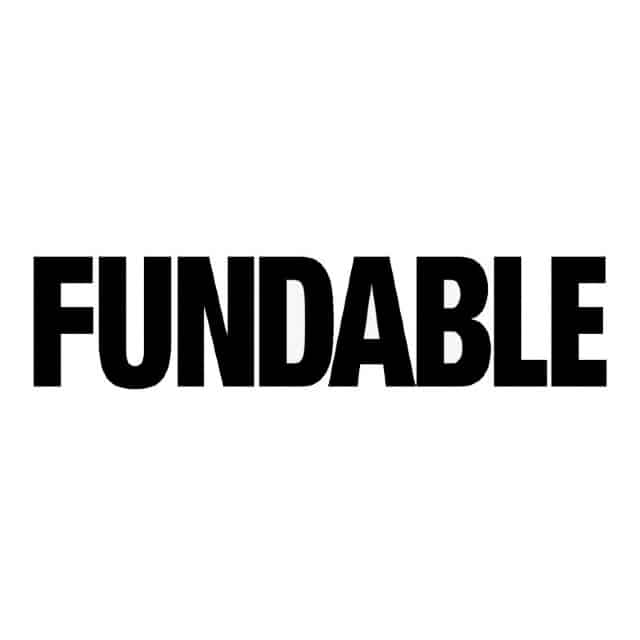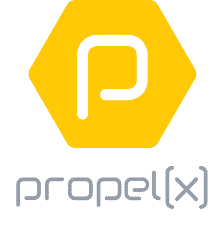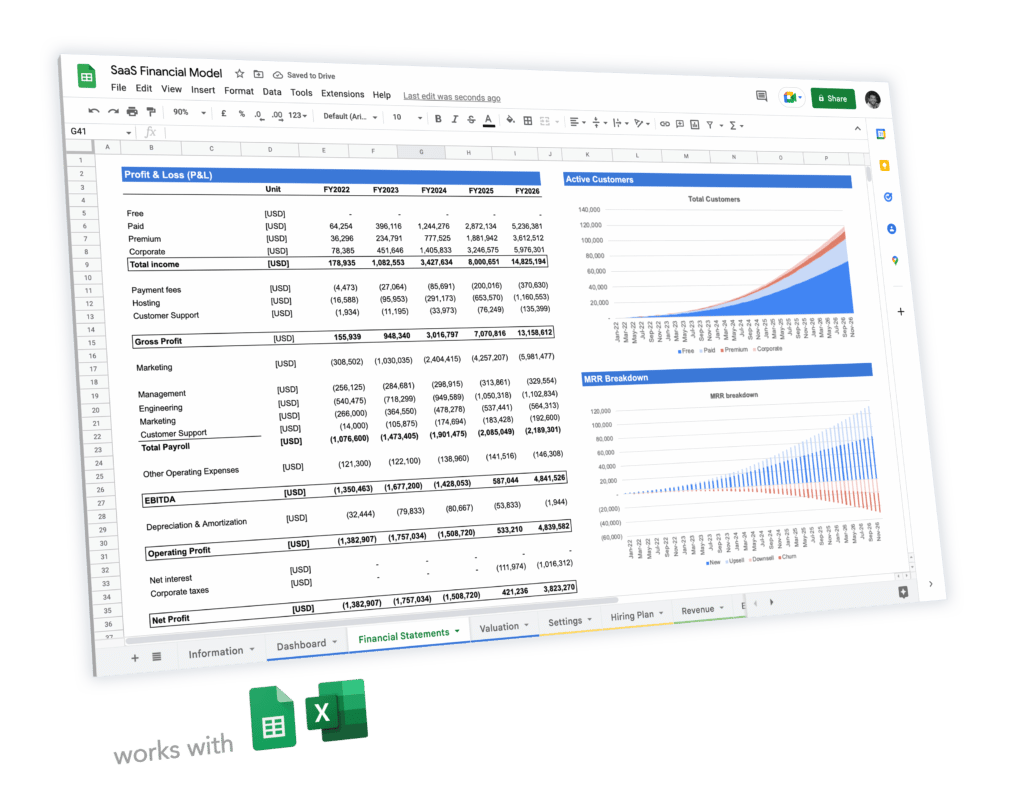Since Obama introduced the Jump-Start Our Business Start-Ups act (JOBS) in 2012, US crowdfunding platforms have flourished and make it easier than ever for startups to raise capital.
Whether you are seeking reward-based of equity-based crowdfunding for your business, we have listed out below the most important platforms you should consider.
Not all of them are relevant for you, so be sure to read their description to see whether you fit in their criteria.
And remember to apply for multiple platforms instead of one. By doing so you will increase your chances of raising capital. Let’s dive in!
Reward vs. equity-based crowdfunding
Crowdfunding may be a very attractive option to obtain large sums of capital. Many platforms have emerged recently and connect thousands of startups looking for capital with potential retail investors.
Yet, it is very important to distinguish the 2 different types of crowdfunding platforms: reward-based and equity-based.
Reward-based
In this form of crowdfunding, investors typically invest a small amount in return for discounts and/or exclusive merchandise. This is especially useful for ecommerce businesses to finance design, sourcing and manufacturing costs before selling the products to consumers.
| Pros | Cons |
|---|---|
| Funding is non dilutive: you do not sell any equity in return for capital | It is very competitive. To be successful, you will have to invest time and efforts into promotion and marketing campaigns to make it on the 1st page of crowfunding websites and get investors |
| You acquire your first customers. Reward-based crowdfunding investors will invest money in return for your product | Reward-based crowdfunding only work for business-to-consumers (B2C) startups. These crowdfunding platforms offer you early adopters in return for discounts and / or exclusive merchandise |
Equity-based
Unlike reward-based crowdfunding, with equity-based crowdfunding you are selling a share of equity to investors in return for their investment. You might raise £100,000 from 200 different investors investing each £500.
This form of equity is less competitive than reward-based. Indeed, your application will likely go through a screening from the platform you are applying to. Equity-based crowdfunding platforms have a list of criteria you need to meet in order to be successfully listed onto their platform.
| Pros | Cons |
|---|---|
| You receive equity from investors (vs. money in return for products in reward-based crowdfunding) | You will need to sell equity in return for the capital you raise (it is dilutive) |
| Because you raise investment from a large number of small investors, you prevent a single shareholder from gaining control over your business | You will go through a thorough screening process (thereby also limiting competition should you succeed) |
1. SeedInvest

SeedInvest is indeniably one of the largest crowdfunding platforms for startups in the US.
With 500k+ registered investors, $300M capital raised and 235 deals to date, SeedInvest should definitely be on your list.
Historically the platform has accepted less than 2% of applications. To apply you will need at least to have a MVP and early traction.
- Equity-based crowdfunding platform
- Fundraising range: $250k – unlimited (average of $975k)
- Success fees: 7.5% of total funds raised (cash) + 5.0% fee (equity)
The plus: being listed onto their platform you benefit from the support of their marketing team to promote your startup to up to 500k investors.
2. Republic

Spin out from AngelList in 2016, with $500M capital raised for 500+ deals since 2016, Republic is one of the fastest growing crowdfunding platforms in the US.
It has also the largest investor community with more than 1 million potential investors registered.
The platform doesn’t only focus on startups though: it also covers real estate, gaming and crypto deals.
Just like SeedInvest, Microventures and StartEngine, Republic has a strict admission policy. In order to be accepted onto their platform you will need to show a MVP and some form of early traction. The platform indeed selects less than 3% of applicants.
Republic boast from a high success rate with 90% of its campaigns meeting their funding objective. An average round raised on Republic is about $500k.
- Equity-based crowdfunding
- Fundraising range: $50k to $1M
- Success fees: 6.0% of total capital raised (cash) + 2.0% (equity)
3. Fundable

Fundable is a major crowdfunding platform which covers all types of businesses (not just tech). The platform raised $650M capital to date.
Like Equity Net (see below), Fundable does not charge any success fee on the amount of capital raised. Instead, the platform offers a subscription starting at $179 per month.
It is worth noting that unlike other platforms, fundable does not contract nor manage the investments: it simply acts as a marketplace where potential investors can contact startups. As such, all investments are made outside the platform.
- Equity or reward-based crowdfunding
- Fundraising range: N/A
- Success fees: none
- Minimum investment: $1,000
The Plus: as a founder, you have the choice between reward or equity-based crowdfunding for your campaign.
4. Microventures

Founded in 2009, with more than 190k+ registered investors and $400m raised to date, Microventures is one of the largest crowdfunding platforms for startups in the US.
Since its application is strict, accepted startups have high chances to raise capital from the platform. Indeed, Microventures only accepts companies that have at least early market traction (revenue or not). Therefore, if you haven’t started to commercialise your product yet, Microventures isn’t for you.
Microventures isn’t cheap though: it charges 10% fee divided between the issuer (startup) and investors) as well as a 10% carry fee.
- Equity-based crowdfunding platform
- Fundraising range: $100k to $1M
- Success fees: 5.0%
- Investor fees: 5.0%
The plus: Microventures also offer the ability to cash out part of your shares in the secondary market should you want to.
5. Propel(x)

Propel(x) is a new angel investment platform for deep technology companies in the US. To date, they have helped over 40+ companies raise over $9M in funding.
Yet, unlike other crowdfunding platforms, note that only accredited investors (such as angel investors) can apply and invest via the platform.
- Equity-based crowdfunding platform
- Fundraising range: $5,000 minimum
- Success fees: 5.0% of total funds raised (cash) for startups that raise more than $200,000 and 8.0% for startups that
6. StartEngine

With more than 500k investors, $350M funds raised to date and 500 deals to date, StartEngine is one of the US top crowdfunding platforms for startups.
StartEngine covers both Seed and Series A+ rounds. Indeed, 51% of companies that raise money on StartEngine return to raise another round in the future.
- Equity-based crowdfunding platform
- Fundraising range: $100k to $1M
- Success fees: 7.0% of total funds raised (cash) + 2.0% (equity) + $10,000
7. EquityNet

Founded in 2005, EquityNet is one of the oldest startup crowdfunding platform in the US. To date, it has funded 1,000 companies representing $500k in capital.
Unlike other crowfunding platforms, EquityNet does not charge a success fee percentage of the total amount of capital raised. Instead, it offers a subscription package ranging from $299 to $2,990 a month.
Therefore, EquityNet accepts any company that applies and subscribe to their platform. There is no selection process on their end.
- Equity-based crowdfunding platform
- Fundraising range: $100k to $100M
- Success fees: none
8. Wefunder

Wefunder focuses on mass retail investing with equity investments as low as $100. The platform has funded more than $100M since 2015
- Equity-based crowdfunding platform
- Fundraising range: $50k to $5M
- Success fees: 7.5% of total capital raised (capped at $375k)
- Minimum investment: $100
The plus: registered users can communicate directly with company founders or executives.
9. Kickstarter

Undoubtedly the leader amongst all reward-based crowdfunding platforms, Kickstarter has funded more than 160,000 campaigns to date. As such, it’s one of the largest crowdfunding platforms for startups in the US.
Kickstarter operate a “all or nothing” model whereby you must reach your fundraising objective in order to receive the funds pledged by investors.
While having a very large number of live campaigns at any time, the application process is strict. You will need to have a working prototype and innovative products and/or services.
- Reward-based crowdfunding platform
- Fundraising range: $500+ (no maximum)
- Success fees: 5.0% on all funds raised
- Investor fee: none
The Plus: the very large community of potential investors as well as the support you get on the marketing side can be a very powerful tool to engage communities when launching a ecommerce business.
10. Indiegogo

Whilst very similar to Kickstarter, the main difference with Indiegogo is its approach to funding. Unlike Kickstarted and its “all or nothing” approach, Indiegogo offers a flexible funding instead: you can receive money pledged, even if you did not reach your objective.
- Reward-based crowdfunding platform
- Fundraising range: $500+ (no maximum)
- Success fees: 5.0% on all funds raised
- Investor fee: none
The Plus: as explained above, you get to keep any money investors have pledged, whether or not you have reached your objective.



 5-year pro forma financial model
5-year pro forma financial model 20+ charts and business valuation
20+ charts and business valuation  Free support
Free support